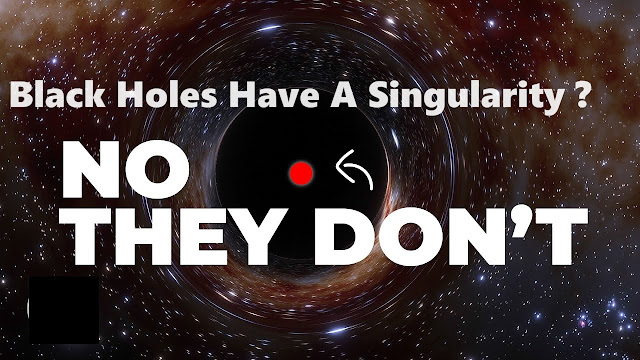Do Black Holes Really Have a Singularity? Unveiling the Mystery!
Black holes are among the most mysterious objects in the universe, but their ultimate enigma lies at their center: the singularity. This concept has fascinated physicists and sparked countless debates—what exactly is a singularity, and does it truly exist in nature? Let’s dive into this mind-bending cosmic puzzle and unveil the mystery of what may—or may not—be lurking at the heart of a black hole.
What is a Singularity?
In the simplest terms, a singularity is a point where the laws of physics as we know them break down. Specifically:
- At the center of a black hole, all the mass is thought to collapse into an infinitely small, infinitely dense point.
- Gravity becomes infinitely strong, and spacetime curvature becomes infinitely steep.
This is a direct prediction of Einstein's General Theory of Relativity, but infinities in physics are generally a sign that our understanding is incomplete.
How Do Singularities Form?
When a massive star collapses at the end of its life, it forms a black hole—a region of spacetime where gravity is so strong that nothing, not even light, can escape.
- The intense gravitational pull causes matter to collapse inward, pulling it into a smaller and smaller space.
- According to relativity, this process continues until all the matter is squeezed into a single point—forming the singularity.
However, this prediction assumes that gravity is the dominant force and ignores quantum mechanics, which describes the behavior of particles at incredibly small scales.
The Problems with a Singularity
While relativity predicts singularities, their existence raises major problems:
1. Breakdown of Physics
At the singularity, quantities like density and gravity become infinite. Physics relies on equations that yield meaningful, finite results—so this suggests that our understanding is incomplete.
2. The Role of Quantum Mechanics
General Relativity governs gravity and spacetime on large scales, but at incredibly small scales (like the singularity), we need quantum mechanics to describe what’s happening.
- However, relativity and quantum mechanics are not yet unified. This gap leaves the true nature of black hole centers unknown.
3. The Event Horizon Problem
Since the singularity is surrounded by the event horizon—the point of no return for light—no information can escape. We can’t observe or directly measure what happens at the center of a black hole.
This has led scientists to ask: Is the singularity real, or is it just a mathematical artifact?
Could There Be Alternatives to the Singularity?
Several theories suggest alternatives to the classical idea of a singularity:
1. Quantum Gravity Effects
A Theory of Quantum Gravity (like string theory or loop quantum gravity) could resolve the singularity by accounting for quantum effects near the black hole’s center.
- Instead of a singularity, there might be a "quantum core" where spacetime is extremely curved but not infinite.
2. Planck Stars
In one model proposed by loop quantum gravity, the collapse of a black hole is stopped at a Planck-scale size (10⁻³⁵ meters). The core would be a highly compressed object—called a Planck star—instead of a singularity.
3. Firewall Paradox
Some theories propose a "firewall" at the event horizon, where quantum effects could drastically alter the black hole’s interior. This idea challenges classical notions of smooth spacetime leading to a singularity.
4. Bounce Models
Instead of forming a singularity, matter collapsing into a black hole might “bounce” and create a white hole—an object that expels matter and energy instead of pulling it in. This could explain some cosmic phenomena and avoids the infinite density problem.
Could the Singularity Be Just an Illusion?
Some physicists believe the singularity may not exist at all. Instead:
- Singularities might represent the limits of our current understanding of physics, not a physical reality.
- A more complete theory—like a unified quantum gravity theory—may replace singularities with something tangible and measurable.
What We Know So Far
- Black holes exist, and their immense gravity warps spacetime dramatically.
- Singularities are predicted by Einstein’s equations, but they push physics to its breaking point.
- Quantum mechanics and relativity must be unified to fully explain what happens inside a black hole.
The Bottom Line
Do black holes really have a singularity? As of now, we don’t know for certain. The singularity may be a mathematical artifact signaling the need for new physics. Future breakthroughs in quantum gravity and advances in observational technology—like gravitational wave detectors and black hole imaging—may finally unveil the true nature of black hole interiors.
For now, the singularity remains one of the greatest mysteries in astrophysics, teasing us with the limits of our understanding of the universe.
Hashtags
#BlackHoles #Singularity #QuantumGravity #GeneralRelativity #CosmicMysteries #Astrophysics #EinsteinTheory #SpaceScience
Keywords
Do black holes have singularities, black hole center explained, singularity physics, quantum gravity and black holes, alternatives to singularity, Planck star theory, white holes, loop quantum gravity, spacetime curvature, astrophysics mysteries.

No comments:
Post a Comment